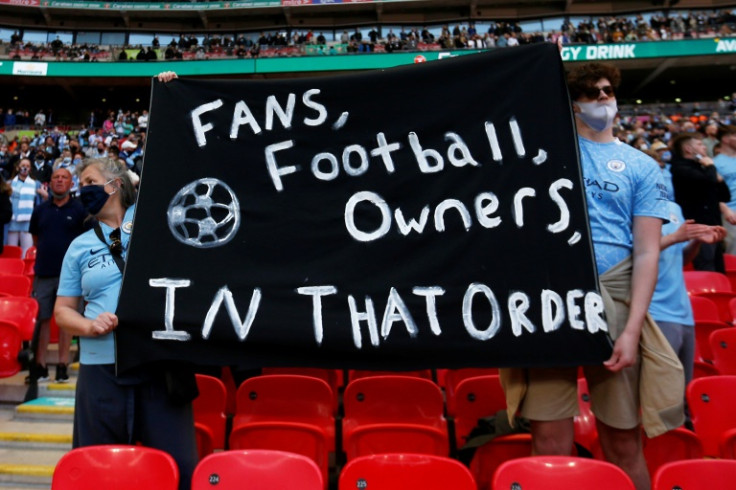Regulator Legislation Exposes Rift In English Football

Divisions between Premier League clubs and the lower leagues of English football were exposed on Tuesday after the UK government introduced a bill to enshrine an independent regulator into law.
The regulator will have a raft of powers to ensure clubs are sustainably run and include the ability to block teams from joining breakaway competitions such as the European Super League.
Premier League clubs, who benefit from the most lucrative television rights deals in the sport, have been at loggerheads with the English Football League (EFL) over a new funding deal for the pyramid.
A deal worth around GBP900 million over six years for the lower leagues, and tied to future TV revenues, has been held up for months due to disagreements between Premier League clubs.
Top-flight teams were warned by the government last month that failure to reach a funding deal would mean one being imposed on them.
Among the regulator's powers is the option to intervene and ensure a settlement is agreed by studying proposals from both sides and imposing one as a binding arrangement.
West Ham chairman David Sullivan expressed the fears among Premier League clubs that their privileged position in world football could be hampered by the regulator.
"The Premier League is the top league in the world," Sullivan told the BBC.
"It is a big export - other countries want to buy it off us and we do very well in Europe generally.
"Anything to water down our income will make us less competitive. We may cease to be the top league so they may ruin an asset that we have."
However, those claims were dismissed by EFL chairman Rick Parry.
"The gap is just getting bigger and bigger between the Premier League and the rest (of Europe), so the idea that the Premier League is going to be unduly constrained or no longer competitive, I just don't even see how that argument gets to first base," said Parry.
The government committed to bringing in a regulator following a fan-led review into football in 2022, led by former sports minister Tracey Crouch.
"Good financial sustainability in football clubs is not going to impact competitiveness negatively, I think it's going to help them thrive," said Crouch.
"One of the things we were very careful about in the actual review was making sure that we had assessed the impact of any of our recommendations on domestic competitiveness, and the ability to attract talent, and we've come to the conclusion that none of this impacts on that.
"Because actually, if you think about it, what we're doing is putting better regulation and governance into football, which ultimately would mean that it would thrive rather than anything else."
© Copyright AFP 2024. All rights reserved.











